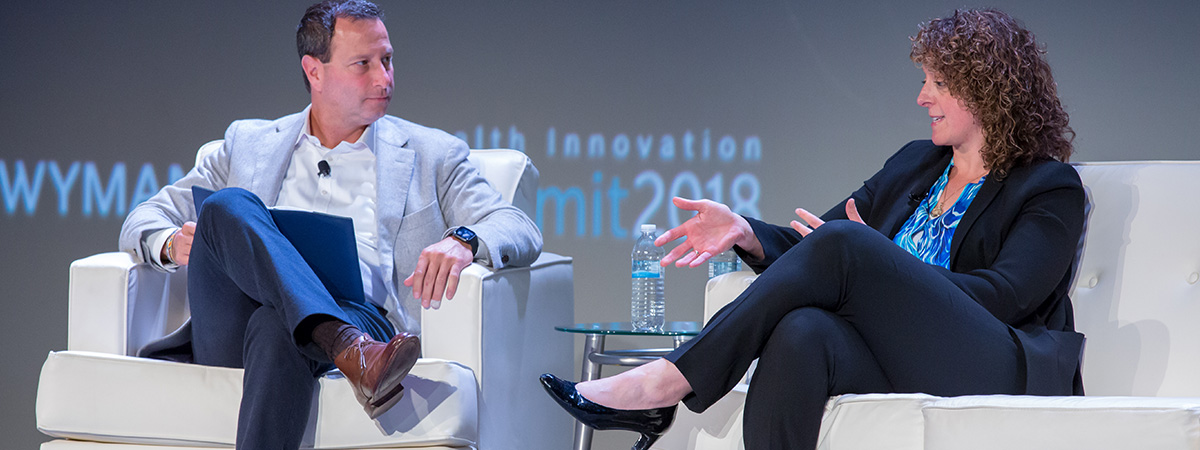Professional sports is the ultimate consumer industry. Winning the game requires skill and practice; winning in the business of sports requires objective strategy, flawless execution, and – most importantly – data. Building and monetizing loyalty from the stands to the smartphone (and everywhere in between) requires a holistic view of the consumer well beyond their interactions with the team. Similarly, in healthcare, creating true loyalty requires understanding how consumers behave during the majority of their lives when they’re not receiving care. In this video from the 2018 Health Innovation Summit, Jessica Gelman, CEO of Kraft Analytics Group (KAGR) and Eric Grossman, CEO and co-founder of NextHealth Technologies, discuss what healthcare can learn from the consumer mastery of sports team loyalty.
Eric Grossman and Jessica Gelman At The 2018 Health Innovation Summit
Video Highlights:
- "A few years after I started, we really started focusing on understanding and being the voice of the customer...having this type of thinking at that time was very progressive." (9:34)
- "The focus was on behavior-based understanding of the customers. What can we understand about them?" (9:58)
- "All of that [customer] information was sitting in disparate data systems. So we wanted to get a single view of the customer." (10:20)
- "We did a retention model, trying to identify the most at-risk customers [season ticket holders] so that we could take action to try and influence their behaviors. And the action is communication and helping them understand their benefits." (11:14)
- "We went through this whole process with the test and control [for at-risk season ticket holders] and found that people who had an intervention renewed at a 5 percent higher rate than those who did not." (12:40)
- "Ultimately, about six years ago, we decided that we wanted to build our own [data] platform." (13:45)
- "Talking to our customers and listening to them, that's a big part. You can of course look at all of the behaviors but also doing the surveying and qualitative information of their experience is so critical." (16:31)
- "We wanted to create a different and unique fan experience while maintaining our revenue streams." (16:54)
- "The most important thing is getting early wins and helping make people's lives easier across the organization. It needs to ultimately be a bottoms-up process. There will be people who don't want to be involved in it. My number one piece of advice is don't waste your time with those people. Find the people who want to understand, who are curious." (23:48)
- "Data can be misleading. Years ago, we were doing a survey to understand what people visit when they come to the [Patriots] website. And no one visited the cheerleader page. Not one. ... Understanding people's behaviors and what they say might not be the same – the triangulating – that's very important to identify." (26:07)
- "AR [Augmented reality] is a huge part of where we’re hoping things will be. Being able to at some point in the future have sunglasses or glasses on and to see the first line down marker through that as if you were watching at home, that would be a huge win from a visual perspective.” (30:04)
- "The amount of data that was made available and created this year is more than what's been created in the last 20 years. It's so pervasive. The depth of data that were're going to be getting about customers is going to allow sports organizations and hoopefully healthcare in the near future, to engage better." (30:37)
For more from the 2018 Health Innovation Summit mainstage, visit here.
To learn about the 2019 Health Innovation Summit, visit here.


